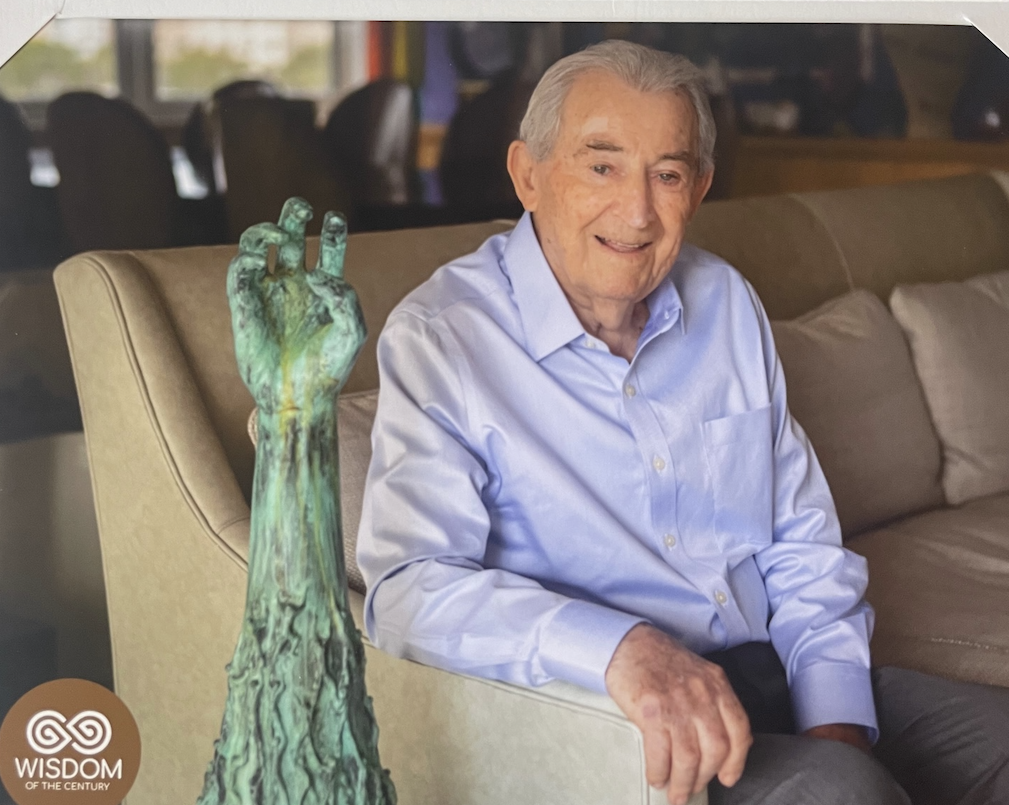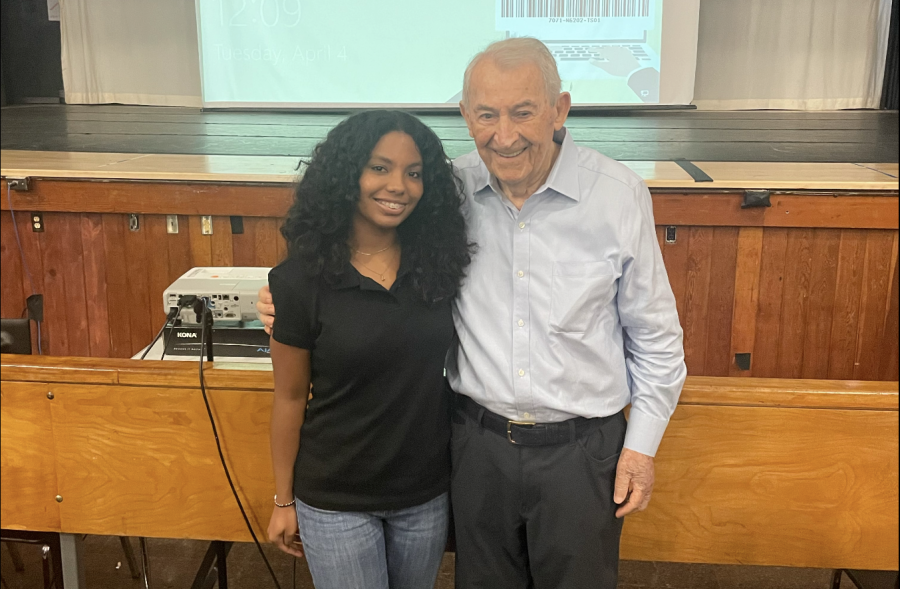David Schaecter was born Aug. 4, 1929, on a farm in Czechoslovakia. With his grandfather escaping the Austria-Hungarian War in 1812, Schaeter’s life revolved around his nearest village, called Snina. This area was a wine country, nestled between the Vihorlat foothills and the Bukovec Mountains. It was home to seven to eight other Jewish families in the area. Growing up, Schaecter rode horses, harvested grapes, brewed wine and studied to read in school, an old wooden synagogue.
Schaecter’s family consisted of his father Isador, his mother Serena and his two younger sisters, Leah and Miriam. Most importantly, he had an older brother named Jacob, who was three and half years older and played a key role in his life.
Despite Schaecter’s seemingly normal life as an 11-year-old, the world was in unrest, with an imminent WWII approaching. In March 1939, Nazi Germany invaded Czechoslovakia, causing Slovakia to secede and align with the Germans. Just a couple of months later, in December 1939, Slovakia became one of the first Axis partners to consent to the deportation of their Jewish residents. An organization called the Hlinka Guard was responsible for rounding up the Jews in the country. Germans did not occupy Slovakia but the Hlinka were just as cruel as the Germans were.
Not long after, Schaecter’s father was taken away to a labor camp, never returning home. In the winter of 1940, his life turned upside down as a result of Slovakia’s decision to deport Jews from the country. Schaecter’s family and other Jewish families in the area were taken to the nearest railway crossing. When the train came, the brutality began, with innocent families being pushed, beaten and stolen from.
The Hlinka forced Schaecter and the other Jews into train carts designated for shipping cattle. Inside these train carts, people were trampled to death and screamed. On the jam-packed cattle cars, there was no bathroom, just one bucket of water and children crying. Keeping the family close, Schaecter’s mother huddled his two sisters over. Unaware of where he was going, Schaecter would eventually see wooden stable barracks and fences saying “Abeit Macht Frei,” not knowing he arrived at the infamous concentration camp known as Auschwitz-Birkenau.
Thinking back to his arrival at Auschwitz, Schaecter remembered the barking dogs and screaming in German, people falling over each other and his mother still holding on to his sisters, refusing to let go. One of the Jews that had ridden alongside them to Auschwitz noticed his small appearance, telling Jacob that Schaecter should stand in front of him and step on his feet to appear taller because children under 12-years-old were killed and he was only eleven and a half. Jacob tried to go to his mother on the other side but was hit and shoved away.
Split from their family, Schaecter and Jacob never saw their mother or sisters again. Upon arrival, they were marched to the place where they were undressed, sprayed, haircut and left with just shoes.
“I couldn’t understand how grown people could be so brutal and so determinedly mean and aggressive. They were not very selective in who they were beating and who they were hitting and who they were kicking, whom they selected to kill. It was almost like at will,” Schaecter said.
In Auschwitz, the Jewish people were dehumanized. Like many others, every morning started off with barking sounds and officers screaming. They were “fed” a measly tea and bread. But at this point, the people here still had the desire to live, comply, walk and work. They were all assigned to a work detail; Schaecter, his brother and others in their group were assigned to clean the railway cars that came in. This work consisted of taking out knee-high human waste, gathering personal belongings and scrubbing the floors clean.
“We thought we would cope with it, but it wasn’t easy. As a matter of fact, it was impossible. You were always aware that sooner rather than later you would get hit in the head, and you would get beaten, and you would get pushed,” Schaecter said.
Jacob comforted Schaecter, feeling protected by his older brother and always being with him. Jacob took beatings that were meant for him, shared his food and was more aware than him, even showing his brother how to boil water. The brothers survived 18 months at Auschwitz before they were moved by train to Buchenwald in September 1943.
At this concentration camp, they were assigned the same work of cleaning trains. Schaecter was 13-years-old when Jacob fell weak with sickness lying down. His stomach swelled up, unable to walk and with an expired desire to live until his time came. For two more months, Schaecter stayed in Buchenwald, until German soldiers moved him to Regensburg, Bavaria by train.
On the train, Schaecter noticed a sign that said Passau, Bavaria, orienting him. About one hour after this, American airplanes bombed the train, setting it on fire and wreaking havoc. People ran everywhere and the train stopped, allowing Schaecter to jump out and escape into the forest.
“
I could see the face of the American gunner in that airplane. They soon realized what they did,
— Schaecter
He recognized the forest, Schwarzwald, as one well-known for exclusively having oak trees. With this information, he dug himself underground and lived off nuts from the trees. On a cold night, Schaecter went out of his hiding spot and heard two people speaking Czech. Yelling as loud as he could, he tried to get their attention. Recognizing a voice, they found him in the forest and rushed him to a secret Czech underground hospital, where they nurtured him to health.
In 1945, the US freed Plzen in Czechoslovakia and the Americans took Schaecter and others to Prague, where he was allowed to go back to Slovakia, to his family’s farm. Soon, however, wanting to leave his stained past, Schaecter returned to Prague and remained in the hospital there until 1949.


